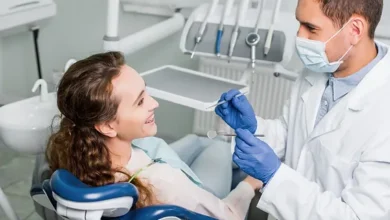Charge Capture Audit: Optimizing Healthcare Revenue and Ensuring Compliance

In the fast-paced world of healthcare, ensuring accurate billing and compliance is crucial to a practice’s financial health. Charge capture audits are an essential tool for healthcare providers to not only improve their revenue but also mitigate risks associated with billing inaccuracies. This article explores the importance of charge capture audits, their process, benefits, challenges, and best practices to optimize healthcare revenue and ensure compliance.
What is a Charge Capture Audit?
A charge capture audit is a detailed review of healthcare providers’ charge capture processes, ensuring that all services rendered to patients are accurately documented and billed. It involves examining medical records, billing codes, and charges to verify whether they align correctly with the services provided. Charge capture audits are essential in preventing errors such as missed charges, overbilling, or underbilling, which can significantly impact both revenue and compliance.
The Role of Charge Capture in Healthcare Revenue Cycle
Charge capture is the first step in the revenue cycle, where services delivered to patients are transformed into billable charges. Accurate charge capture ensures that healthcare providers are reimbursed appropriately for services rendered. Without accurate charge capture, healthcare organizations risk losing revenue due to missed charges or even facing financial penalties due to compliance violations.
Why Are Charge Capture Audits Important?
1. Identifying Errors and Discrepancies
One of the main reasons for conducting charge capture audit is to identify errors and discrepancies. Common mistakes include missed charges, incorrect billing codes, and discrepancies between services provided and those billed. These errors can lead to underbilling, resulting in lost revenue, or overbilling, which could trigger audits from insurance companies and regulatory bodies.
2. Ensuring Compliance
Healthcare providers must adhere to strict billing codes and regulations, such as those set by the Centers for Medicare & Medicaid Services (CMS) and the Health Insurance Portability and Accountability Act (HIPAA). Charge capture audits ensure compliance with these regulations, reducing the risk of penalties for fraudulent billing practices.
3. Enhancing Revenue Optimization
By ensuring that all services are captured and billed correctly, charge capture audits help healthcare providers optimize their revenue. A well-executed audit can identify areas where revenue is being lost due to billing mistakes or missed charges, allowing healthcare organizations to recover revenue and improve cash flow.
Charge Capture Audit Process: How Does It Work?
Step 1: Data Review and Sampling
The first step in the charge capture audit process involves reviewing a sample of charges from medical records. This sample represents a cross-section of services provided, making it easier to identify potential discrepancies or patterns of errors. The auditor will then examine whether each charge aligns with the corresponding medical documentation.
Step 2: Cross-checking Medical Documentation and Charges
Next, auditors compare the charges entered into the billing system against the medical documentation provided by the healthcare provider. This step ensures that every service billed was actually performed and that the correct billing codes were used.
Step 3: Identifying Patterns of Errors
Auditors look for patterns in billing errors, such as consistently undercharging for certain services or frequent coding mistakes. Identifying these trends helps healthcare organizations improve their billing practices and reduce recurring errors.
Step 4: Implementing Corrective Measures
Once the audit identifies areas of concern, healthcare providers can implement corrective measures, such as providing additional training for medical coders or adjusting their charge capture processes to minimize errors in the future.
Technological Tools for Charge Capture Audits
In today’s digital age, charge capture audits can benefit from the use of advanced technology. Automated auditing tools and artificial intelligence (AI) can help healthcare providers streamline the auditing process, improve accuracy, and identify billing discrepancies faster.
Electronic Health Records (EHR): EHR systems play a critical role in charge capture audits by providing auditors with easy access to patient records and service documentation. EHRs help reduce errors and increase efficiency during audits by ensuring that all information is readily available in a standardized format.
AI-Powered Auditing Tools: AI tools can analyze vast amounts of data to detect patterns and flag errors. These tools can automatically match medical codes to procedures and diagnoses, helping to catch coding mistakes and omissions before they result in lost revenue or compliance issues.
Benefits of Charge Capture Audits
1. Improved Revenue Collection
By ensuring that all services rendered are properly documented and billed, charge capture audits help healthcare organizations recover lost revenue. This process increases billing accuracy and minimizes the risk of claim denials or rework.
2. Enhanced Compliance and Risk Mitigation
Charge capture audits minimize the risk of compliance violations, which could lead to penalties or even legal issues. Accurate billing practices, supported by regular audits, reduce the likelihood of audits from government bodies or insurance companies.
3. Increased Operational Efficiency
Regular charge capture audits can uncover inefficiencies in billing and coding processes. By addressing these inefficiencies, healthcare providers can streamline their operations and improve their revenue cycle management. This leads to quicker reimbursements and smoother operations.
Challenges in Charge Capture Audits
1. Complexity of Billing Codes
Medical billing codes are highly detailed and frequently updated. Keeping up with these changes can be a challenge for healthcare providers and auditors. Continuous education and training are required to ensure that auditors and medical coders are always up to date with the latest codes and regulations.
2. Resistance to Change
Healthcare providers may encounter resistance from clinical staff when introducing new auditing practices. Some may view audits as an unnecessary burden. Effective communication and training are essential to ensure that everyone involved understands the value of charge capture audits.
3. Time and Resource Constraints
Charge capture audits can be time-consuming and resource-intensive. Healthcare organizations must balance the time spent on audits with their daily operations. However, investing in automation tools can reduce the time and effort required for these audits.
Best Practices for Effective Charge Capture Audits
1. Regular and Routine Audits
Conducting audits on a regular basis ensures that issues are caught early and addressed promptly. It’s important to integrate charge capture audits into the regular workflow of healthcare organizations rather than treating them as an occasional task.
2. Comprehensive Staff Training
Training all staff involved in charge capture and billing is essential to ensure accurate documentation. Regular training on the latest billing codes and best practices is crucial for reducing errors in charge capture.
3. Leveraging Data Analytics
Using data analytics can help healthcare providers identify trends and problem areas before they require an audit. Data-driven insights can also help predict where errors are most likely to occur, allowing healthcare organizations to address issues proactively.
The Future of Charge Capture Audits
The future of charge capture audit is heavily influenced by advancements in technology. AI, machine learning, and automation are transforming the auditing process, making it faster and more accurate. Additionally, with the growing shift towards value-based care, charge capture audits will play a pivotal role in ensuring that healthcare providers are reimbursed fairly for the value of services they provide, rather than the volume of services.
Conclusion
Charge capture audits are an essential aspect of the healthcare revenue cycle. They help healthcare providers ensure accurate billing, optimize revenue, and maintain compliance with regulatory standards. By implementing effective charge capture auditing processes, leveraging technology, and addressing challenges proactively, healthcare organizations can protect their financial health while providing high-quality care to their patients.





